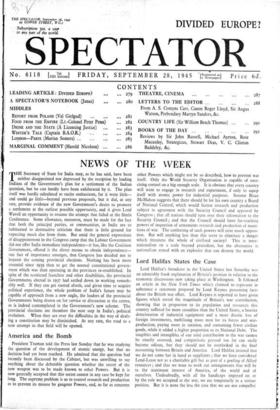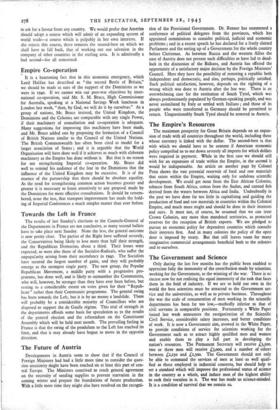Lord Halifax States the Case
Lord Halifax's broadcast to the United States last Saturday was an admirably frank explanation of Britain's position in relation to the economic discussions now taking place at Washington. It followed an article in the New York Times which claimed to represent in substance a statement prepared by Lord Keynes presenting facts about the British war effort. Lord Keynes is reported to have given figures which reveal the magnitude of Britain's war contribution, showing that in proportion to its population and resources this country suffered far more casualties than the United States, a heavier deterioration of industrial equipment and a more drastic loss of foreign investments, mobilising more men for its forces and war- production, paying more in taxation, and consuming fewer civilian goods, while it added a higher proportion to its National Debt. The tangibles and intangibles of our total contribution to the war cannot be exactly assessed, and comparisons pressed too far can easily become odious, but they should not be overlooked in the final accounting between Britain and America. Lord Halifax insisted that we do not come hat in hand as suppliants ; that we have considered Lend-Lease not as a charitable gift but as part of a pooling of Allied resources ; and that we want to work out arrangements that will be to the maximum interest of America, of the world and of ourselves. Undoubtedly, with all the handicaps imposed on us by the role we accepted in the war, we are temporarily in a serious position. But it is none the less the case that we are not compelled
to ask for a favour from any country. We would prefer that America should adopt a course which will admit of an expanding system of world trade—a course which is palpably in her own interests. If she rejects this course, there remains the second-best on which we shall have to fall back, that of working out our salvation in the company of other countries in the sterling area. It is admittedly a bad second—for all concerned.



























